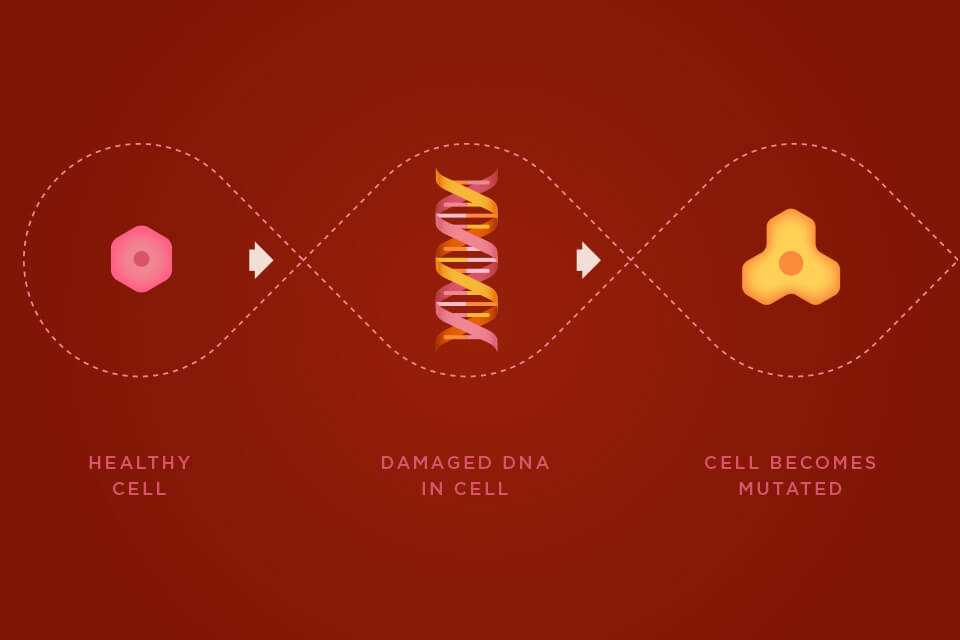Causes of Breast Cancer
Causes of breast cancer: How did this happen?
When you’re told that you have breast cancer, it’s natural to wonder what may have caused the disease. But no one knows the exact causes of breast cancer. Doctors seldom know why one woman develops breast cancer and another doesn’t, and most women who have breast cancer will never be able to pinpoint an exact cause. What we do know is that breast cancer is always caused by damage to a cell’s DNA.

Healthy Living and Personal Risk Guide
Did you know that 1 in 8 women will be diagnosed with breast cancer in her lifetime? While you can’t usually prevent cancer, it is important to be proactive about your health. Get the free Healthy Living and Personal Risk Guide to help you protect your overall health and assess your breast cancer risk.
Download the free guide
Known risk factors
Women with certain risk factors are more likely than others to develop breast cancer. A risk factor is something that may increase the chance of getting a disease. Some risk factors (such as drinking alcohol) can be avoided. But most risk factors (such as having a family history of breast cancer) can’t be avoided. Having a risk factor does not mean that a woman will get breast cancer. Many women who have risk factors never develop breast cancer.
3 Steps to Early Detection
Breast cancer can’t usually be prevented, but you can take three important steps to help detect it earlier. The 3 Steps to Early Detection Guide can help you increase your chance of finding breast cancer before it spreads.
Download the free guide


